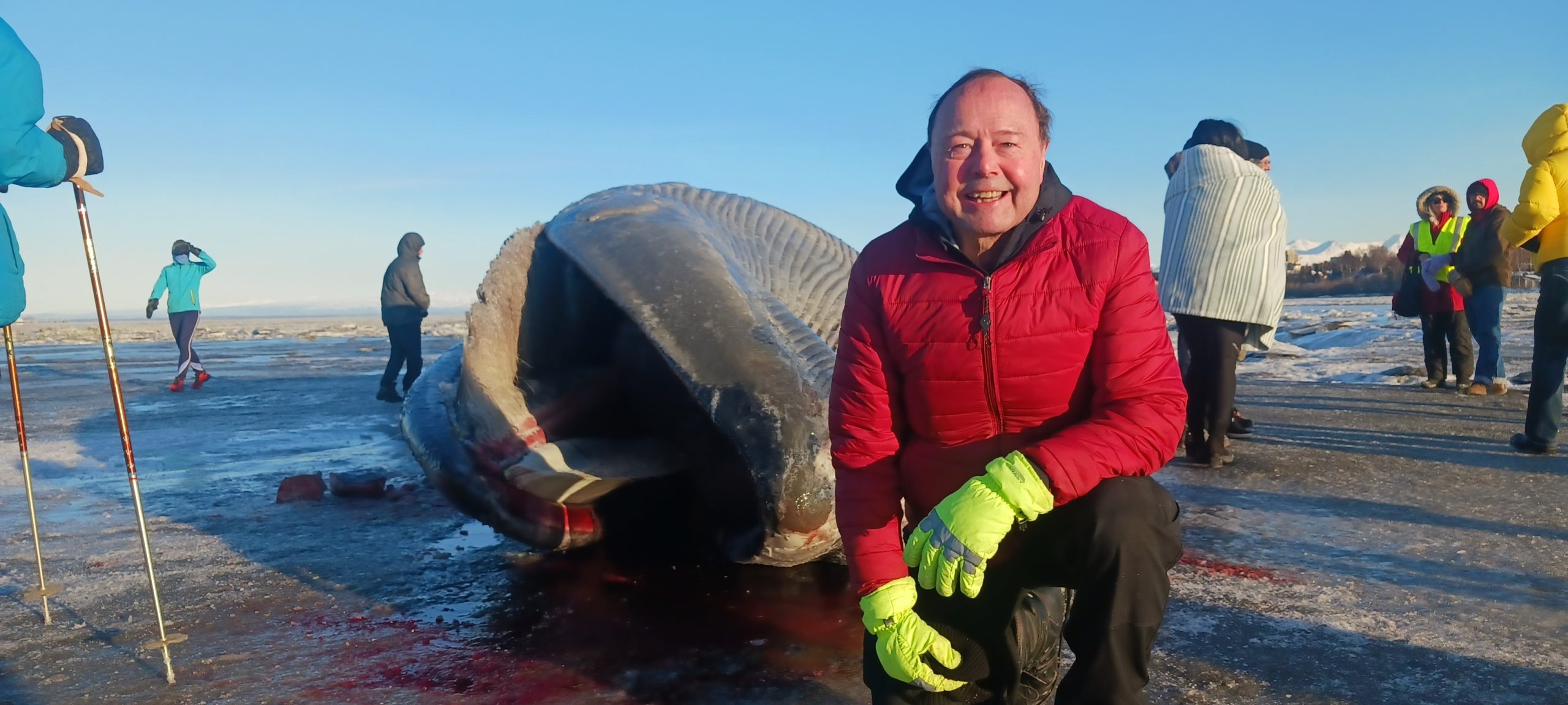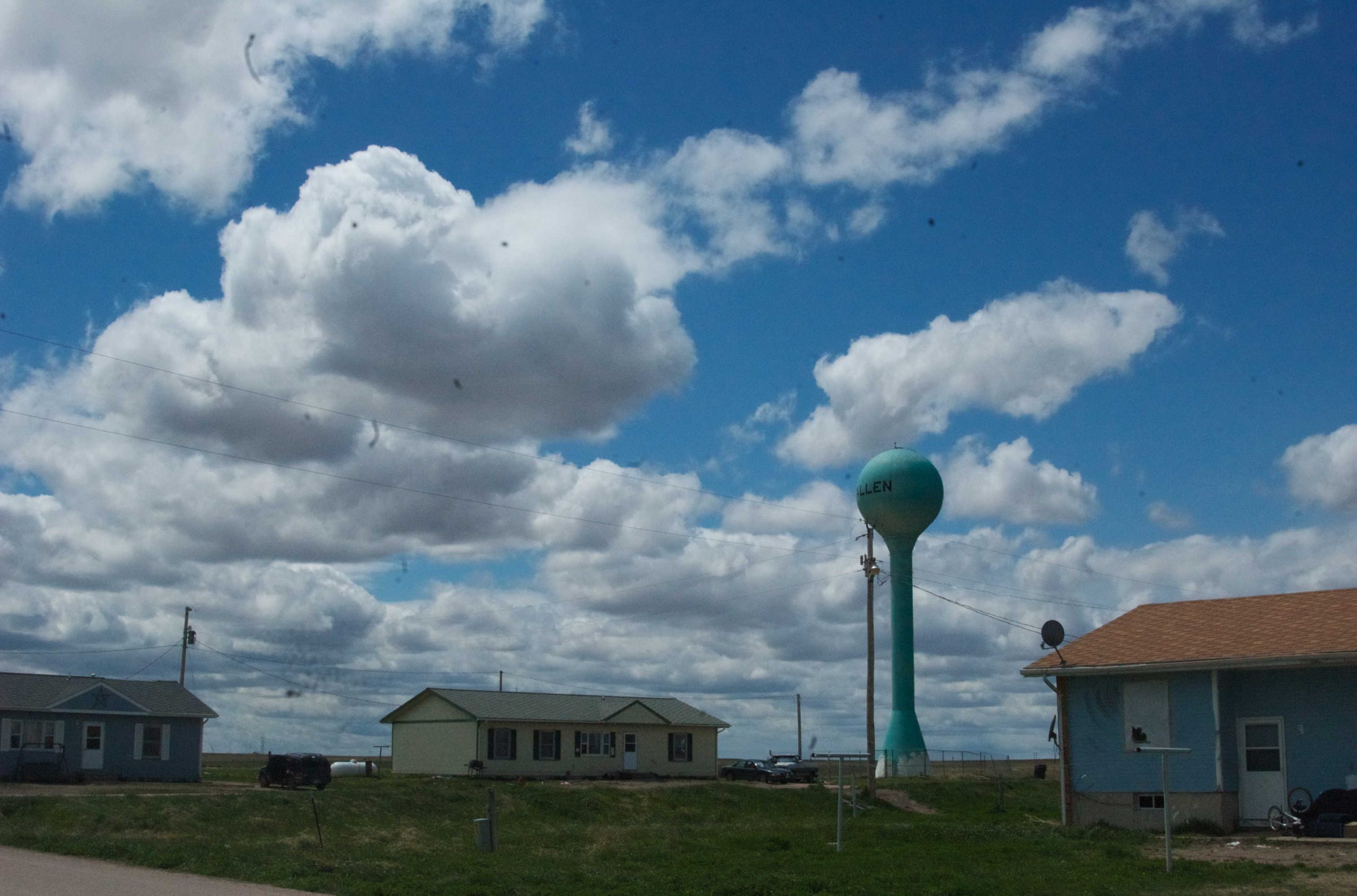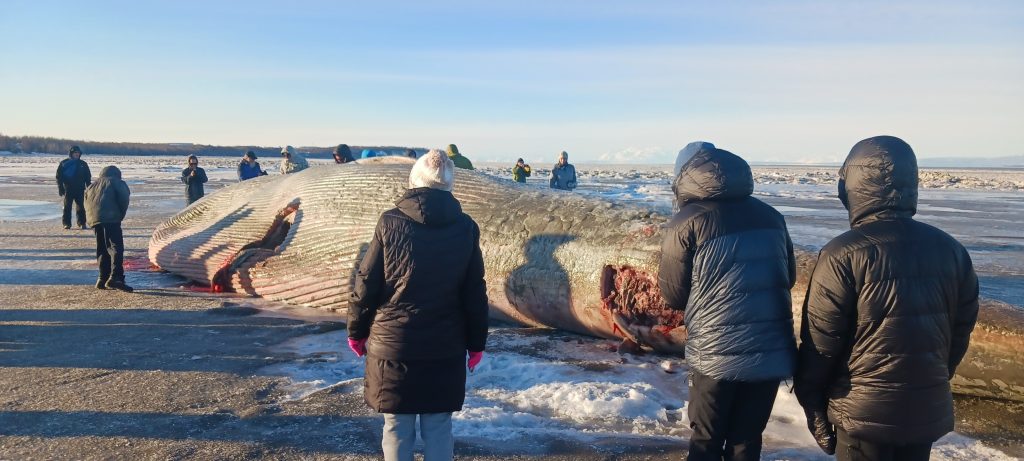Podcast: Play in new window | Download | Embed
Photo: Fin whale draws community to the mudflats. (Darian LaTocha)
A frozen whale is beached on the mudflats near Anchorage, Alaska.
The unusual sight draws hundreds of people every day to see and experience it firsthand.
Scientists have identified it as a rare fin whale.
After researchers took samples to find out what caused the whale’s death, they left nature to do its work.
As Rhonda McBride from our flagship station KNBA tells us, some are hoping to salvage parts of the whale, before the tides take it back out to sea.
For the ocean to reclaim the whale, it will take high tides at their peak to move it off the mudflats.
The National Oceanic and Atmospheric Administration’s (NOAA) Alaska whale stranding coordinator Mandy Keogh says that will probably happen sometime in mid-December.
“For the community of Anchorage, it’s probably an opportunity they won’t get again.”
Keogh says fin whale are listed as an endangered species and it’s rare to see them in the Upper Cook Inlet.
This one was a young female and already quite big.
“It’s a 47-foot whale. You know when these whales grow to be well over 70 feet, so this is actually a fairly young animal. So, when you think about it, they would almost you know more than not quite double in length when that was an adult.”
Keogh says NOAA has had a lot of questions about whether parts of the whale can be salvaged.
She says rules regulating that comes under the Marine Mammal Protection Act, which allows Alaska Natives to harvest the meat and whale parts. because of their long tradition of using them for food, as well for their arts and crafts.
“No one else can collect any more mammal parts, so we really need people to leave the animal alone or, if there are Alaskans in the area that are salvaging parts, to give them space so that they can do it safely.”

Michael Livingston visits with fin whale. (Photo: Darian LaTocha)
Michael Livingston is an Unangax from the Alaskan Peninsula.
“There was a ton of people walking out there on the on the ice, and it was just a real powerful to be in her presence for a few minutes.”
He says the whale is a gift.
“How large she is and how graceful she is. even in her passing — to see her fluke to see her tail and how large it was how powerful was and muscular. It was just a really inspiring to be that close to a whale and to be in her presence.”
Livingston says there is a group of people organizing a blessing for the whale.

Cape Foulweather, Oreg. (Photo: Wayne Taylor / Flickr)
In Oregon, a coastal piece of the Siletz Tribe’s ancestral territory has been recently restored, nearly 170 years after Congress created the reservation’s boundaries.
Twenty-seven acres of Cape Foulweather on the Oregon Coast have been reacquired by the Confederated Tribes of Siletz Indians.
The tribe purchased the land from the McKenzie River Trust last month, with a $2 million grant from NOAA.
Angela Sondenaa is director of the tribe’s Natural Resources Department.
“It really is an amazing opportunity for us to become stewards again.”
She hopes to reintroduce cultural burning to the coastal prairie section, to rejuvenate its ecosystem.
“Cape Foulweather is an incredibly diverse and sensitive ecological area. It’s been a cultural gathering site for millennia. And it will provide direct opportunity for tribal members to gather and resume subsistence harvest in the rocky coastline there.”
The Siletz reservation was established in 1855 by Congress and President Franklin Pierce.
It was further diminished through land cessions.

Allen, S.D. (Photo: Ss114 / Wikimedia)
And hopes run high that Congress will pass a bill that would help Native Americans get home mortgages.
Dakota News Now reports that Senate Bill 1941 would permanently fund the United States Department of Agriculture’s (USDA) Native Community Development Financial Institution lending program.
While some proponents like U.S. Sen. Mike Rounds (R-SD) say they’re confident the bill will pass with bipartisan support, others point out that the bill was introduced in June of 2023 and has been stuck in a Senate Committee since March of this year.
Just 38% of Native Americans own a home in South Dakota.
Get National Native News delivered to your inbox daily. Sign up for our daily newsletter today.



